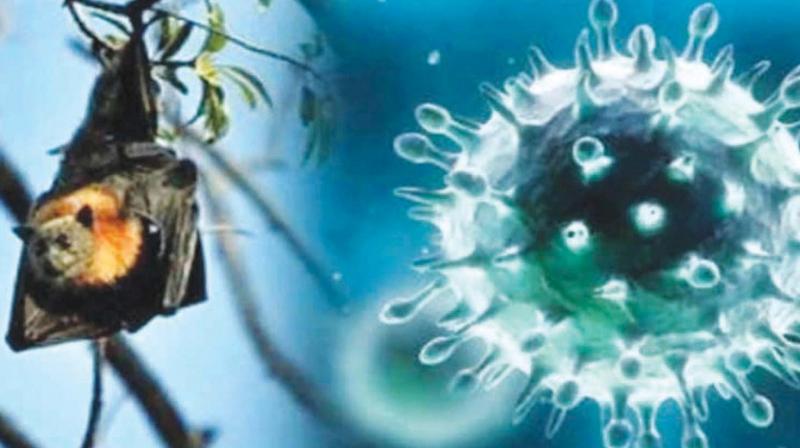Tamil Nadu takes tips from Kerala on fighting Nipah virus

CHENNAI: On May 19, 2018, the world woke to the news of Nipah outbreak in Kozhikode, Kerela - the first outbreak in the state and third in India. Kerela widely known for its exemplary medical service was left staring down at a potential epidemic, this time of magnitude it had not dealt with in the past. The infection was contained soon, but it had already claimed the lives of 17 people, including Lini Puthussery, a nurse who ‘martyred’ while treating an infected patient.
The deadly infection made its way to the state once again this year, with a 23-year-old student in Ernakulam being diagnosed with Nipah virus on June 4. Nevertheless, this time over, with lessons learnt from last year’s tragedy, the state won the war against Nipah with their laudable efforts. Not only was the 23-year-old man saved, but the government also prevented the disease from spreading to a second person. The man, who was undergoing treatment at a private hospital in Kochi has now been discharged after 54 days at the hospital and Kerela Health Minister KK Shailaja declared Ernakulam to be Nipah free on Tuesday.
Kerela’s impressive fight against Nipah comes as a lesson to other states say, doctors. Speaking to Deccan Chronicle, Dr Shanthi, secretary, Doctor's Association for Social Equality says, “Nipah is considered to be one of the deadliest infections as it is communicable through respiratory droplets. Regardless of this, Kerela has combated the disease successfully.” She says this can be largely attributed to the state’s well co-ordinated, well-organised effort and the government’s commitment to developing an impressive combat mechanism. “However, what is more, commendable is the state's inclination towards building a robust 'preventive healthcare system'. This has been crucial in this success story.”, she adds.
Kerela’s triumph, however, did not come just as easily. Ably headed by health minister KK Shailaja a posse of doctors immediately set about an action plan, a plan farsightedly conceived months before in anticipation of a second outbreak, says a senior doctor. The elaborate preventive system included a control room conducting 24 /7 surveillance on a select list of 300 people who were suspected to have come in contact with the infected patient, around the clock contact number for attending to public calls and timely establishment of isolation wards to treat possible cases.
“Nipah can be transmitted both due to animal-to-human and human-to-human contamination. Identifying the source of infection and controlling it is vital in preventing further outbreaks.” explains Dr Abith, a senior neurosurgeon.
With treatment limited to only supportive care and no documented cure, (Ribovirin and Chlorocin are antibodies currently under test ) Nipah is certainly one of the most threatening diseases we have witnessed in current times. Kerela's win over the much-dreaded virus speaks volumes about its public healthcare system in addition to sealing its top position in the nation’s health radar. Sadly, even as Kerela celebrates its well-deserved victory, the death of over 150 infants in Muzaffarpur, Bihar reveals the much larger ugly picture of the nation’s overall healthcare system. Only time will tell if other states follow Kerela’s example and bring about a progressive healthcare system, something the nation is in desperate need of.

